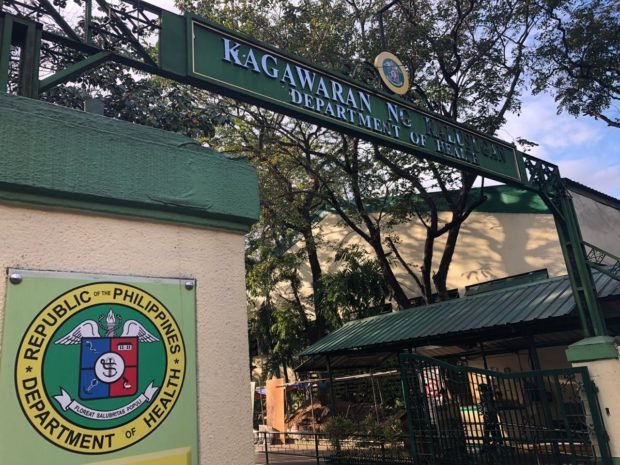MANILA, Philippines — The Department of Health (DOH), the lead agency in the government’s pandemic response, has used only 38 centavos for every peso of its 2021 budget as of August this year despite the pressing need to ramp up spending on efforts to fight COVID-19.
At the House plenary deliberations on the proposed 2022 budget of the DOH on Tuesday night, Marikina City Rep. Stella Quimbo was alarmed by the agency’s low utilization rate.
Cebu Rep. Vincent Franco Frasco, who sponsored the DOH budget, disclosed that as of Aug. 31 this year, the agency had obligated P168.3 billion and disbursed P94.26 billion out of its P246.9-billion budget for 2021.
“It seems that the DOH’s fund utilization is really low. Effective utilization as of Aug. 30 is only about 38 percent. In other words, for every one peso of allotment, only 38 centavos have been disbursed,” Quimbo said.
“So would you agree that DOH has a problem with its absorptive capacity?” Quimbo asked Frasco.
In response, Frasco said the agency’s bulk of expenditures usually occurred during September to October of the year.
“The bulk of the disbursement [begins from the] third quarter up to fourth quarter,” he said.
But Quimbo pointed out that in 2019 and 2020, the DOH also had undisbursed funds amounting to P37 billion and P59 billion.
“Isn’t it that the unspent funds from the yearly budget of DOH are really huge? We give them a huge budget because we need it for the public’s health, but we can see based on financial reports that a huge amount is unspent,” the economist-lawmaker said.
“I’m sorry but that is my conclusion. We can see that the disbursement rate is really low,” she added.
Services affected
In a Viber message to the Inquirer, Quimbo stressed that the utilization rate was a measure of an agency’s ability to implement a program.
“If the money being spent is low, this means that the services being given [are] also limited,” she said.
According to her, “low utilization rate means projects that have been identified as essential and necessary are not rolled out in time—which may cost the lives and health of Filipinos.”
“The first step toward economic recovery is a solid and timely health response, which DOH must deliver as the lead agency during the pandemic,” she said.
The timely health response, she said, included an efficient vaccination program, ensuring that there was a sufficient number of front-liners protected and properly compensated, proper data collection and monitoring, an effective barangay-level response and hospital referral system, a sufficient number of hospital beds and isolation facilities, an effective contact tracing system and continuous testing.
“If DOH cannot deliver on these because it lacks manpower or know-how, COVID-19 will continue to spread, and the economy will continue to be in a slump,” she said.
“The failure to deliver programs will ultimately be reflected in low fund utilization rates,” she added.
Quimbo said additional funds for the DOH would only go to waste if the agency has problems with its capacity and effectiveness in budget utilization.
Other deficiencies
Earlier, the Commission on Audit (COA) had strongly rebuked the DOH for various deficiencies in the use of a P67.32-billion fund for pandemic response in 2020.
These issues, the COA said, cast doubt on the regularity of transactions, while keeping much-needed funds at bay and unspent.
“More importantly, the billions of pesos in the coffers of the DOH that have remained not obligated and disbursed at year-end is counter-beneficial to the Department’s continuing efforts toward controlling the spread of COVID-19 through the provision of quality health service,” the COA said in its report released last month.
“It can, thus, be said that these funds that remained idle as [of] year-end were not translated to much-needed health supplies, equipment and services that could have benefited both the health workers and the general public during the critical times of the pandemic,” it added.
The DOH replied that it was addressing the deficiencies that the COA raised, adding that the issues noted by the state auditor in its report were “compliance issues, procedural and documentary deficiencies which are currently being addressed by the management of DOH.”
The DOH added that of the P79.79 billion COVID-19 funds it received that were also mentioned in the COA report, P68.99 billion had been used as of December 2020 for the procurement of test kits, personal protective equipment, and payment for benefits and salaries of health-care workers, among others.
“Due to the enactment of Bayanihan II – Continuing Appropriations, the department was still able to utilize in the year 2021 the unobligated balance of allotment as of year-end 2020,” the DOH noted.
